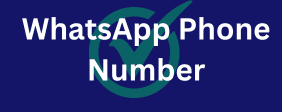In today’s digital age, navigating the vast landscape of communication platforms can be overwhelming. Two prominent contenders are Facebook and email. Facebook vs Email: Choosing the But which one reigns supreme for your needs? Here’s a breakdown of Facebook and email, highlighting their strengths and weaknesses to empower you to choose the most effective tool.
Facebook: The King of Social Connection
Facebook thrives on fostering social connections and building communities. Here’s what Facebook excels at:
- Real-Time Interaction: Facebook facilitates instant communication through features like comments, messages, and live video. It’s ideal for keeping up with friends and family in real-time.
- Community Building: Facebook Groups Benefits of Phone Number Lists allow users to connect with like-minded individuals based on shared interests or hobbies.
- Visual Appeal: Facebook prioritizes visual content, making it perfect for sharing photos, videos, and live streams, enhancing engagement and storytelling.

However, Facebook might not be the ideal choice for everything:
- Privacy Concerns: Sharing personal information on social media comes with inherent privacy risks. Be mindful of what you post.
- Information Overload: News feeds can become cluttered with irrelevant content, making it difficult to find important information.
- Professional Communication Limitations: While Facebook can be used for professional networking, it’s not ideal for formal business communication or sending sensitive documents.
Email: The Timeless Champion of Professional Communication
Email remains a cornerstone of professional communication. Here’s why email is still relevant:
- Security and Reliability: Emails offer a secure and reliable way to send and receive messages, with features like encryption and document attachments.
- Formal Communication: Email’s structured format makes it ideal for sending official documents, proposals, or important business updates.
- Organization and Searchability: Emails are easily categorized and searchable, allowing for efficient information retrieval and record-keeping.
However, email has its limitations:
- Lack of Real-Time Interaction: Email communication isn’t immediate. Responses might take time, depending on the recipient’s availability.
- Limited Engagement: Sharing visuals or creating engaging content formats is less effective in emails compared to platforms like Facebook.
- Spam and Phishing Concerns: Email inboxes can be flooded with spam or phishing attempts. Be cautious and vigilant.
The Verdict: It Depends on Your Needs
There’s no single “winner” between Facebook and email. The best platform depends on your communication goals:
- For building social connections, sharing updates, and real-time interaction, Facebook reigns supreme.
- For formal communication, sending documents, or prioritizing security and organization, email remains the champion.
The Power of Combining Forces
The beauty lies in leveraging both platforms strategically:
- Sync Contacts: Connect your Facebook contacts to your email address book for easier communication management.
- Promote Events: Announce upcoming events or gatherings on Facebook and use email for sending formal invitations or detailed information.
- Follow Up on Connections: Connect with someone you met on Facebook via email to establish a more professional connection.
By understanding the strengths and limitations David Grullon: Lead Security Engineer’s Insights on Secure Phone Practices
of Facebook and email, you can choose the most effective tool for each situation. Remember, a well-rounded digital communication strategy often involves utilizing both platforms to their full potential.
